
Breast Cancer
Latest News
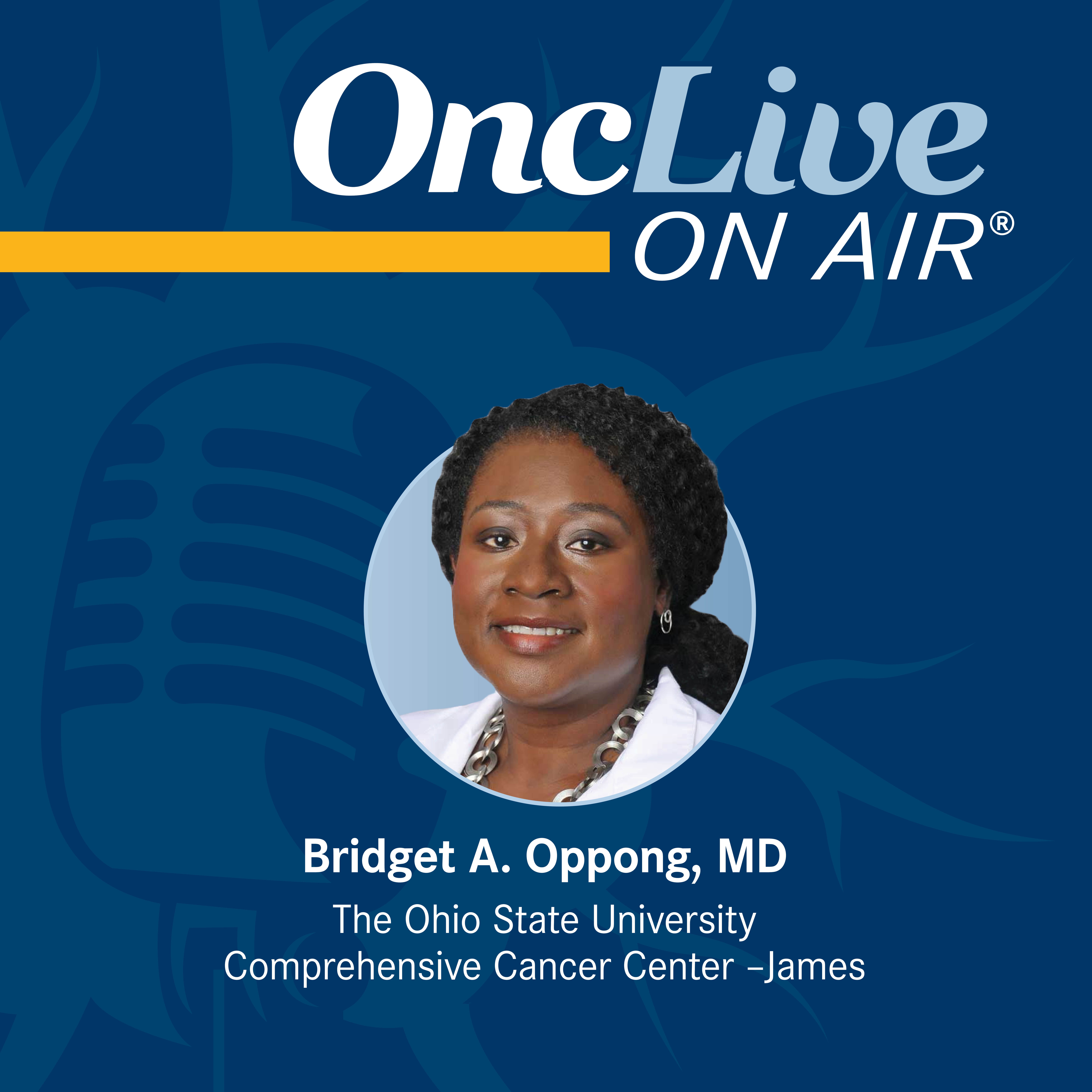
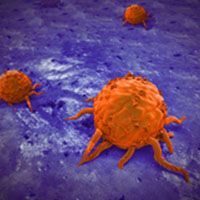
Frontline Eganelisib Triplet Provides Potential Long-term PFS Benefit in Metastatic TNBC

CYNK-101 Plus Avelumab Mediates ADCC Activity in Select PD-L1+ Solid Tumors
Latest Videos

CME Content
More News

The Chemotherapy Foundation Symposium® returns to New York City for its 40th annual meeting with a 3-day program that will deliver the latest updates across the gamut of oncology care.

Hope Rugo, MD, discusses the challenges of differentiating between HER2-low and HER2-negative metastatic breast cancer and prognostic differences in HER2+ and HER2-low metastatic breast cancer.
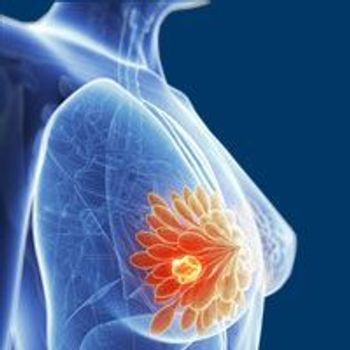
The National Institute for Health and Care Excellence has issued final guidance supporting use of neoadjuvant pembrolizumab in combination with chemotherapy, followed by adjuvant pembrolizumab, for adults with triple-negative breast cancer.

Fulvestrant plus palbociclib improved outcomes following an aromatase inhibitor plus palbociclib for patients with estrogen receptor–positive, HER2-negative advanced breast cancer with rising ESR1 mutation, according to updated findings from the phase 3 PADA-1 trial.

Data presented at the ESMO Congress 2022 highlighted advances across treatment modalities, including landmark data for trials in melanoma, breast cancer, and lung cancer, as well as early data that made headlines in a subgroup of patients with colon cancer.

The administration of trilaciclib prior to treatment with sacituzumab govitecan meaningfully reduced adverse effects related to the antibody-drug conjugate in patients with unresectable locally advanced or metastatic triple-negative breast cancer, according to initial data from a phase 2 trial.

Fam-trastuzumab deruxtecan-nxki induced meaningful antitumor activity in patients with HER2-positive, HER2-low, or HER2-negative metastatic breast cancer who presented with brain metastases at baseline.
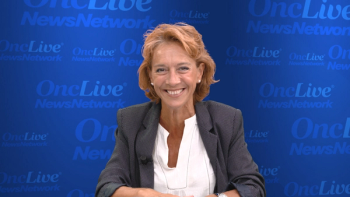
Breast medical oncologists close out the program on HR+ metastatic breast cancer by highlighting ongoing clinical trials with antibody-drug conjugate therapy.

Irene Morae Kang, MD, discusses key overall survival data from the phase 3 PALOMA-2 and PALOMA-3 trials, which evaluated the addition of palbociclib to standard endocrine therapy for patients with advanced breast cancer.

Carefully selected patients with triple-negative or HER2-positive breast cancer who demonstrated pathologic complete responses to neoadjuvant systemic therapy as predicted by image-guided vacuum-assisted core biopsy avoided breast surgery and went on to standard radiotherapy.

Trastuzumab Deruxtecan Could Challenge Frontline Trastuzumab/Pertuzumab Combo in HER2+ Breast Cancer
Sara A. Hurvitz, MD, discusses the evolving treatment paradigm in HER2-positive breast cancer, ongoing research in the space, and developments in the treatment of triple-negative breast cancer.

The treatment of patients with breast cancer is making noteworthy strides in several clinical settings, with recent trial results showing overall survival improvements for advanced and metastatic disease.

Capivasertib plus fulvestrant generated a statistically and clinically significant improvement in progression-free survival in select patients with hormone receptor–positive, HER2-low or -negative, locally advanced or metastatic breast cancer.

Camizestrant led to a statistically significant improvement in progression-free survival compared with fulvestrant in postmenopausal patients with estrogen receptor–positive, locally advanced, or metastatic breast cancer who were previously treated with endocrine therapy for advanced disease.
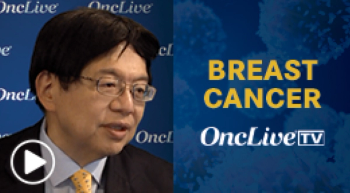
Naoto T. Ueno, MD, PhD, FACP, discusses patient-reported outcomes with fam-trastuzumab deruxtecan-nxki (Enhertu) in hormone receptor (HR)–positive/HER2-low metastatic breast cancer.

Jeannie Shen, MD, discussed the shifts in surgical practice for patients with breast cancer, the need for a multidisciplinary approach to optimize treatment for individual patients, and ongoing efforts at Huntington Hospital and Cedars-Sinai to increase awareness and improve care for these patients.
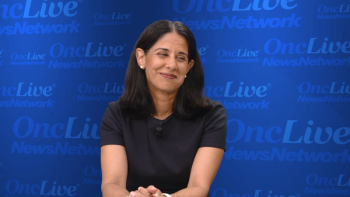
Centering discussion on antibody-drug conjugates in HR+ metastatic breast cancer, panelists consider the selection and use of these agents in practice.
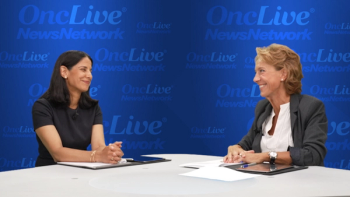
Centering their discussion on the HER2 low setting of HR+ metastatic breast cancer, medical oncologists review data behind trastuzumab deruxtecan therapy.

Yuan Yuan, MD, PhD, discusses the role immune checkpoint inhibitors have played in the treatment of triple-negative breast cancer, ongoing efforts to investigate the role of immunotherapy in breast cancer, and the work Cedars-Sinai is conducting to promote breast cancer awareness.

Megan Kruse, MD, discusses the evolving treatment landscape in HR-positive, HER2-negative breast cancer, how the approval of fam-trastuzumab deruxtecan-nxki has affected sequencing choices in HER2-positive disease, and the importance of addressing racial disparities in breast cancer care.

Bridget A. Oppong, MD, discussed the importance of recognizing and addressing gaps in outcomes between patients with breast cancer in different racial groups. She also addressed the need for better advocacy for Black patients and advocated for improved screening guidelines to close the gap in racial disparities in breast cancer care.

The addition of palbociclib to adjuvant endocrine therapy (ET) failed to improve invasive disease-free survival over ET alone in patients with estrogen receptor–positive, HER2-negative early breast cancer.

Treatment decisions in the second-line setting for patients with HER2-positive metastatic breast cancer are not as cut-and-dried as deciding between which data have the best outcomes.

Amit Jain, MD, discusses the benefit of CDK7 inhibitors in hormone receptor–positive breast cancers.

Shared insight on appropriate treatment options for patients with HR+ metastatic breast cancer following progression on CDK4/6 inhibitors.









































